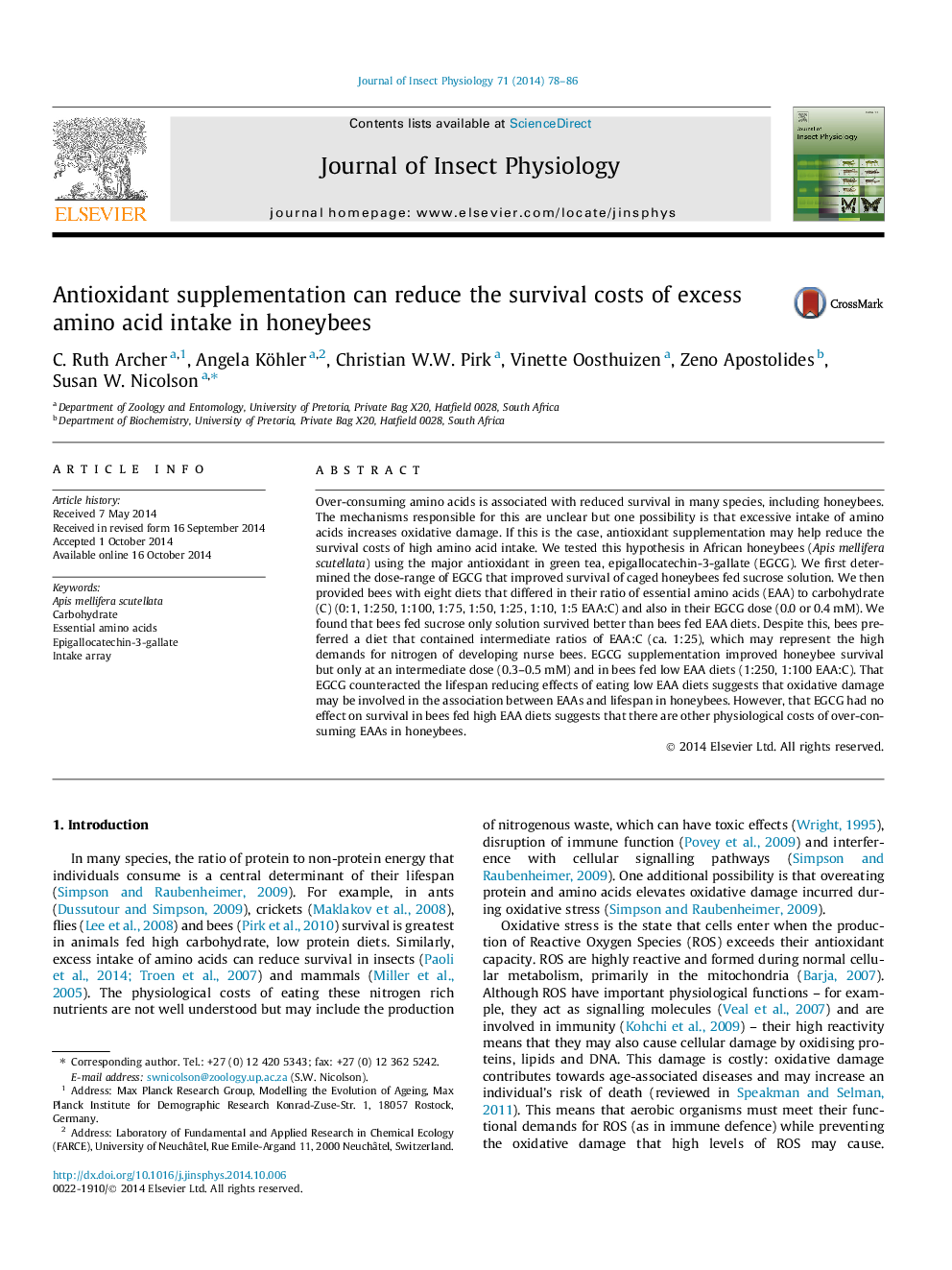| کد مقاله | کد نشریه | سال انتشار | مقاله انگلیسی | نسخه تمام متن |
|---|---|---|---|---|
| 5921558 | 1570999 | 2014 | 9 صفحه PDF | دانلود رایگان |
- Essential amino acid:carbohydrate (EAA:C) ratio consumed affects honeybee survival.
- We manipulated the EAA:C ratio of diets & found EAA reduced lifespan at all ratios.
- Antioxidant supplementation restored survival in bees fed low EAA diets only.
- Oxidative damage may help mediate lifespan reduction by excess EAA intake.
Over-consuming amino acids is associated with reduced survival in many species, including honeybees. The mechanisms responsible for this are unclear but one possibility is that excessive intake of amino acids increases oxidative damage. If this is the case, antioxidant supplementation may help reduce the survival costs of high amino acid intake. We tested this hypothesis in African honeybees (Apis mellifera scutellata) using the major antioxidant in green tea, epigallocatechin-3-gallate (EGCG). We first determined the dose-range of EGCG that improved survival of caged honeybees fed sucrose solution. We then provided bees with eight diets that differed in their ratio of essential amino acids (EAA) to carbohydrate (C) (0:1, 1:250, 1:100, 1:75, 1:50, 1:25, 1:10, 1:5 EAA:C) and also in their EGCG dose (0.0 or 0.4Â mM). We found that bees fed sucrose only solution survived better than bees fed EAA diets. Despite this, bees preferred a diet that contained intermediate ratios of EAA:C (ca. 1:25), which may represent the high demands for nitrogen of developing nurse bees. EGCG supplementation improved honeybee survival but only at an intermediate dose (0.3-0.5Â mM) and in bees fed low EAA diets (1:250, 1:100 EAA:C). That EGCG counteracted the lifespan reducing effects of eating low EAA diets suggests that oxidative damage may be involved in the association between EAAs and lifespan in honeybees. However, that EGCG had no effect on survival in bees fed high EAA diets suggests that there are other physiological costs of over-consuming EAAs in honeybees.
Journal: Journal of Insect Physiology - Volume 71, December 2014, Pages 78-86
